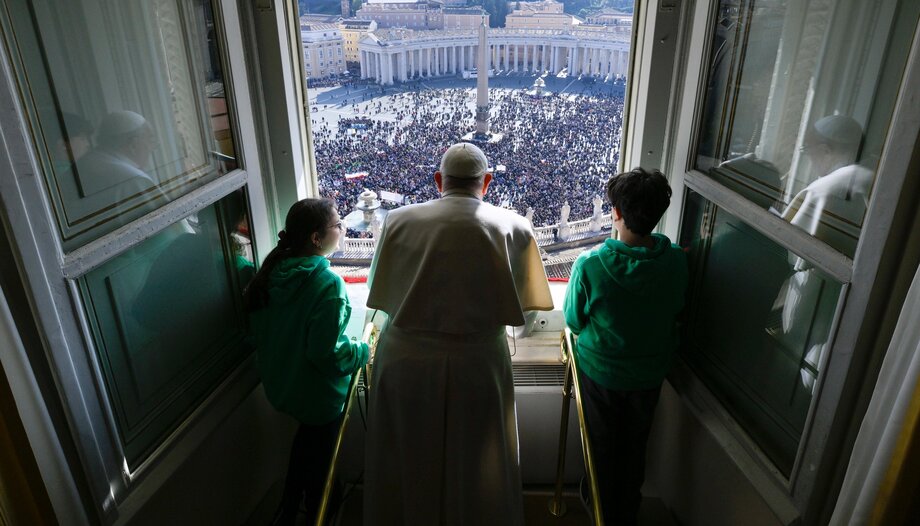 "Forgiveness is a source of peace," Pope encourages in Kinshasa
"Forgiveness is a source of peace," Pope encourages in Kinshasa "Forgiveness is a fundamental condition for the Christian", Francis stresses
"Forgiveness is a fundamental condition for the Christian", Francis stressesIn the sixth session of the cycle of catechesis on "the vices and virtues", Pope Francis meditated in the Paul VI Hall, in the Audience of this January 31, the feast of St. John BoscoThe report, on anger, a "visible" vice, "difficult to hide", "capable of taking away sleep", and that "does not subside with time".
Anger transforms our countenance and puts our body in turmoil, and develops in us "the negative perception of the other", the Pontiff said in his meditationin which he offered two prescriptions against anger.
First, "that we do not go into the night without seeking reconciliation, in order to nip this demonic spiral in the bud. And secondly, "to bring to prayer the commitment to forgive others, as God does with us".
Holy indignation of Jesus, zeal for goodness
There is also "a holy anger," the Pope recalled, "of which the Gospel also speaks to us, which is born of our being. It does not allow us to remain indifferent in the face of injustice. The ancients were well aware that "there is an irascible part in us that cannot and must not be denied (...). We are not responsible for anger in its emergence, but always in its development, and sometimes it is good for anger to be vented in a proper way".
If a person never gets angry, if he is not indignant in the face of injustice, if he does not feel something that shakes him to the core when faced with the oppression of a weak person, then he is not human, much less Christian, Francis pointed out. There is a holy indignation, which is not anger. Jesus knew holy indignation several times in his life, he never responded to evil with evil, but in his soul he experienced this feeling, and in the case of the merchants in the temple, he carried out a strong and prophetic action, dictated not by anger but by zeal for the house of the Lord.
It is up to us, with the help of the Holy Spirit, to find the right measure of the passions, to educate them well, so that they turn towards good and not towards evil, the Holy Father stressed.
"Let us ask the Lord to be aware of our weakness in the face of anger, so that when it arises, we can channel it positively, so that it does not dominate us, but that we transform it into a holy zeal for the good," he said to the Spanish-speaking pilgrims.
At the origin of wars and violence
Francis has encouraged in the Audience to practice the art of forgiveness. What counteracts anger is benevolence, gentleness, patience. Anger is a terrible vice that is at the origin of wars and violence.
In this regard, the Pope recalled that tomorrow Italy celebrates the National Day for Civilian Victims of War. To the memory of those who fell in the two world wars, he added "the many, too many, defenseless victims of the wars that unfortunately still bloody our planet, such as the Middle East and Ukraine. May their cry of pain reach the hearts of those responsible for the nations, and arouse projects of peace".
The stories of wars these days denote "so much cruelty," Francis lamented. "Peace is meek, it is not cruel."
Priests at the University of the Holy Cross, Feast of St. John Bosco
Before giving the blessing, the Pope welcomed in Italian the more than six thousand faithful present in the Aula, and he made a special mention of the priests who are participating in a training course promoted by the Pontifical University of the Holy CrossThe event was attended by pilgrims from the parish of the Divine Christ the Worker of Ancona, and students from various schools and musical bands.
As always, his thoughts have been addressed to young people, in the memory of St. John BoscoHe quoted him when addressing pilgrims of different languages, the sick, the elderly and the newlyweds.











